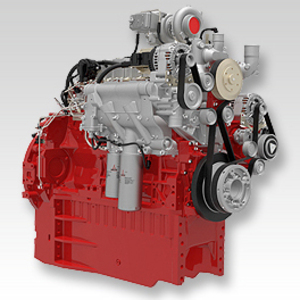UFOP funds project for B100 approval in Deutz Agripower engines



Photo: Deutz AG
September 24, 2013
BY UFOP
The Deutz Agripower engines of the series TCD 7.8 L6, TCD 6.1 L6 and TCD 4.1 L4 can be approved for operation with biodiesel as a pure fuel. This is the result of the project successfully completed by Deutz AG. In the course of this project, the engines were subjected to extensive field tests in practice, with a conclusive result for Deutz common rail injection systems and exhaust gas aftertreatment systems. The Union zur Förderung von Oel- und Proteinpflanzen (UFOP) particularly welcomes this result, as this project continues the efforts undertaken in projects previously funded by UFOP and resulting in approvals of Deutz engines.
From the point of view of UFOP, verification for meeting the exhaust stage EU COM IIIB applicable since 2011 with biodiesel as a pure fuel is given upon successful completion of this project. This exhaust stage requires the use of exhaust gas aftertreatment systems. Here, Deutz AG offers around 4 to 8 liters of capacity in agricultural applications for the so-called SCR technique (selective catalytic reduction). The SCR system used operates with a 32.5 percent aqueous urea solution (Adblue), which is injected into the exhaust gas upstream of the catalytic converter with the aim of converting nitrogen oxides into harmless nitrogen.
Advertisement
Advertisement
Despite the very low particle limit value of 25 mg per kWh that applies to this exhaust stage, the required reduction of the particle emission is ensured without a particle filter in the way of an optimum engine technology and engine setting. The particle lowering effect benefits the biodiesel here. The joint study confirms that the exhaust gas aftertreatment is exposed to alkali and alkaline earth metals as well as phosphorous in the biodiesel. The requirement for approval is a high biodiesel quality, as it has been repeatedly documented in the annual test reports resulting from the unannounced product inspections in the membership circle of the German Association Quality Management Biodiesel (AGQM). With these approvals, Deutz AG recommends this quality level, which surpasses the requirements of the quality standard for biodiesel—EN 14214.
In its report, the engine manufacturer strongly urges for the further reduction of metal contents and improvement in the measuring methods required for this. For the engine industry, the quality assurance of biodiesel is the trend-setting key for the granting and future retention of approvals in light of ever-increasing emission requirements. Therefore, from the point of view of UFOP, the biodiesel industry is well advised not only to proceed with the existing quality policy, but to strengthen its efforts.
Advertisement
Advertisement
All engine approvals for biodiesel applications in Deutz engines and the special boundary conditions for using biodiesel are discussed in detail in the updated Technical Bulletin TR 0199-99-01218/1.
The final report is available for download at www.ufop.de.
The technical bulletins are available at:
http://www.Deutz.com/service/betriebsstoffe_br_und_additive/kraftstoffe.de.html
http://www.Deutz.com/service/operating_liquids_brand_additives/fuels.en.html
Related Stories
Global digital shipbuilder Incat Crowther announced on June 11 the company has been commissioned by Los Angeles operator Catalina Express to design a new low-emission, renewable diesel-powered passenger ferry.
ATR and French SAF aggregator ATOBA Energy on June 19 signed a memorandum of understanding (MOU) to explore ways to facilitate and accelerate sustainable aviation fuel (SAF) adoption for ATR operators.
Argent Fuels, a leading provider of carbon-saving fuels in the UK, is accelerating its efforts to support a greener future. The expansion of its High Blend Biodiesel will supply to bus, coach, HGV fleets and rail in the south of the UK.
Sprague Operating Resources LLC on June 24 announced it has been selected by the New York City Department of Citywide Administrative Services to supply renewable diesel for its marine fleet, including the iconic Staten Island Ferry.
On June 17, the NYC Department of Citywide Administrative Services and the Department of Transportation announced the start of the Staten Island Ferry’s transition to renewable diesel, marked by the delivery of the first barge of fuel.
Upcoming Events










